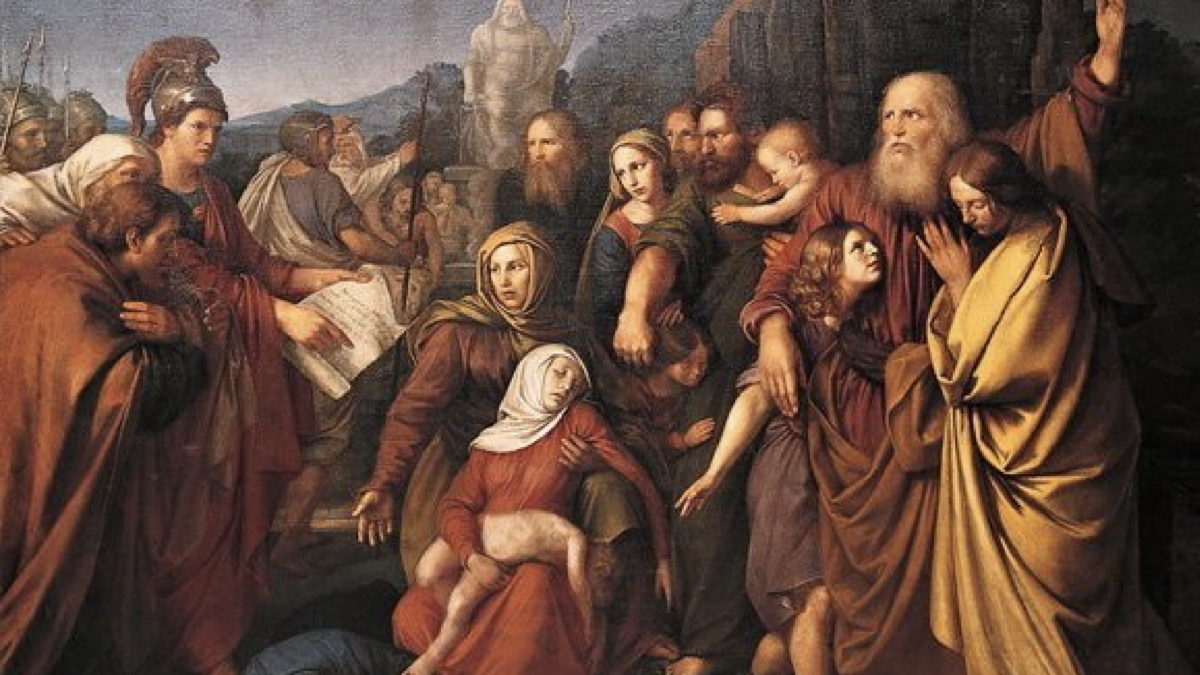In the late 19th and early 20th century, assimilating Jewish newcomers to the United States, looking for a celebration that was not only in seasonal proximity to Christmas but one that tried to ape its festive tone, turned Hanukkah into the vacuous, anesthetized, consumerist, areligious holiday we know today.
And every few years I feel compelled to point out that Hanukkah is the most misunderstood holiday in American life. It’s true that Hanukkah isn’t a Jewish “yom tov,” a “good day,” handed down to chosen people in the Torah like Passover or Rosh Hashana. It is a minor holiday with no restrictions on work. The two books of the Maccabees are canon in Roman Catholicism and in Eastern Orthodox churches, but not Judaism.
Yet one suspects it’s the one Jewish celebration most Americans have heard about — a holiday that has something to do with ancient Jews finding a single day’s oil in the Holy Temple that miraculously burns for eight. Though Hanukkah is perhaps the only Jewish holiday confirmed in archeological evidence, the bit about the miracle of the oil was added centuries after the events told in the two books of Maccabee by rabbis who probably wanted to avoid fueling Jewish zealotry under Roman rule.
Today? “Modern celebrations of Hanukkah,” says the Union for Reform Judaism, “focus on family and friends and include the lighting of the Hanukkah menorah (also called a hanukkiyah); singing and playing special songs and games (dreidel); and eating foods prepared in oil…”
Stop, it’s so tedious.
There is nothing in the books of the Maccabees about menorahs. There is, however, a lot about loyalty, violence, family, and faith. It is the most openly Zionist holiday. Hanukkah, “dedication” in Hebrew, tells the story of the bloody civil war between the Maccabees and the Seleucids’ Jewish allies, the capture of Jerusalem (800 years before the advent of Islam), the rededication of the Second Temple, and early days of the Hasmonean dynasty.
The Maccabees 1 and 2 are principally concerned with the patriarch Mattathias and his five sons, who rise against Antiochus, the Hellenic king and traitor who desecrated the Temple, banned Jewish ritual, and levied exorbitant taxes on the people. When a messenger of the king travels to a village to bribe Mattathias into sacrificing to the Greek gods, the old man refuses. And when a fellow Jew, hoping to avoid a scene, volunteers to make the sacrifice instead, Mattathias slays the Hellenized Jew and then the representative of the crown, sparking a revolt. The Maccabees, a rural clan, go on to conduct a brutal guerrilla war against the ruling elite.
Many of Mattathias’s children would die badly in the effort, one being trampled by a war elephant. But all get off relatively easily compared to the children of the “woman with the seven sons.” In this haunting tale, told in the second book of Maccabees, a mother and her children are arrested by Antiochus, who demands they eat pork as a test of their loyalty to the crown. All the brothers refuse, and one by one they are tortured to death by the king — one has his tongue ripped out, the other his limbs cut off, and the other his skin stripped from his body, and so on. All the while, their stoic mother only watches them die before perishing herself.
Now, granted, none of this has the makings of a consumer-friendly 21st-century holiday. I don’t expect my parents to give their kids one present a night for every martyred son. (Martyrology is largely alien to the Jewish faith — though, perhaps, not as alien as a dreidel or “gelt.”) Still, it’s a tragedy that Hannukah has been stripped of its historical and cultural dimensions and turned into this insipid, generic celebration of candles when the real story is so brutal, fascinating, and epic.










